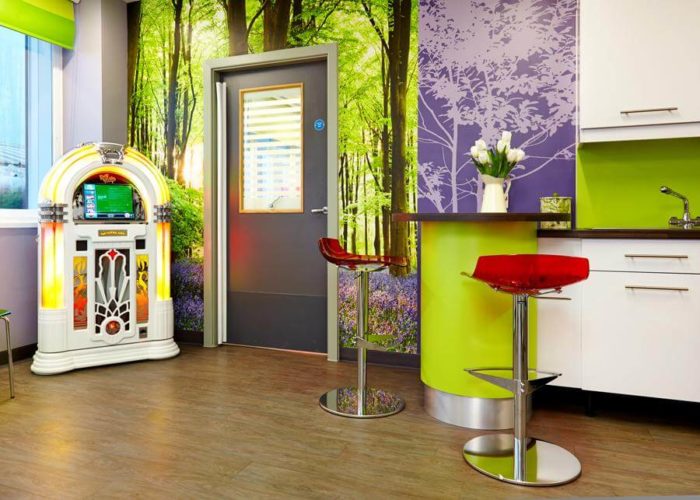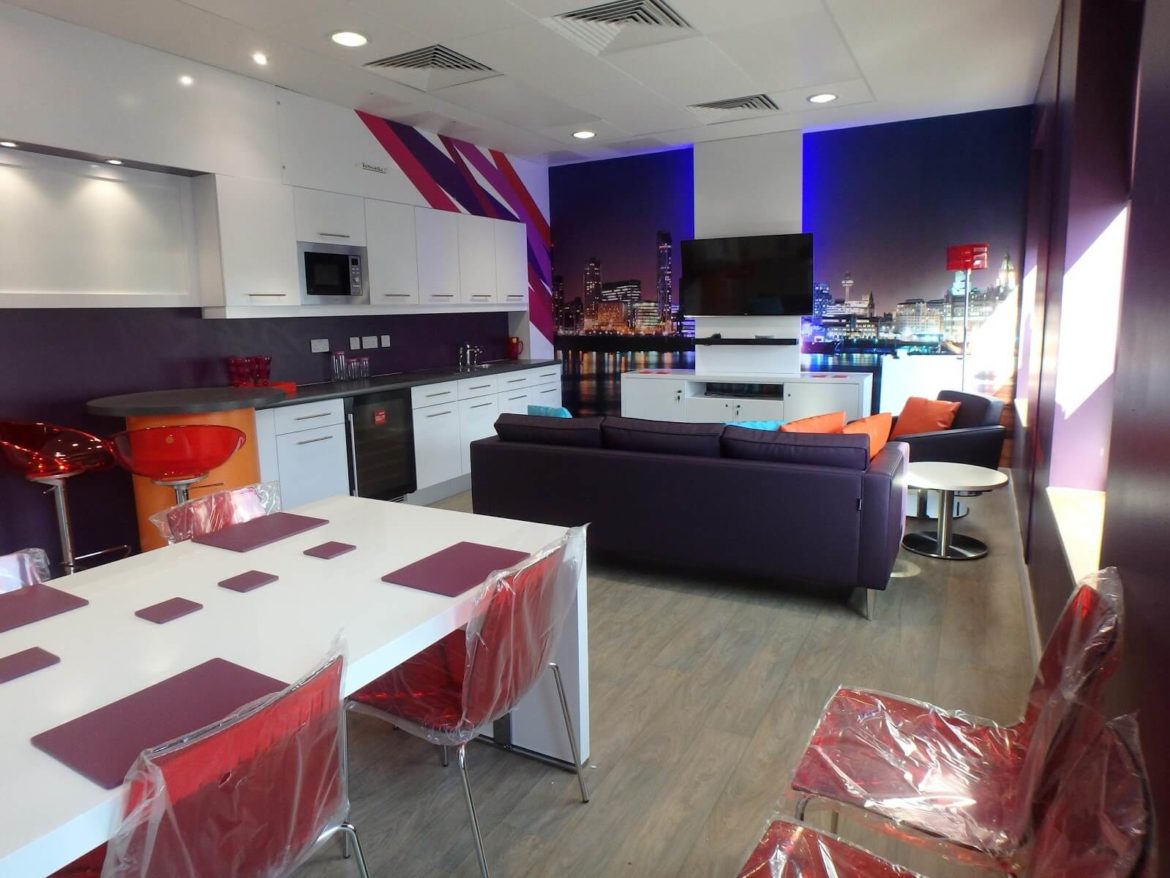
Since we began working with hospitals to redesign wards 10 years ago, we’ve partnered with Teenage Cancer Trust on a number of projects, working with them to create age appropriate spaces for young patients facing cancer.
Like Teenage Cancer Trust, we know that being a young person in hospital comes with its own unique set of challenges. It’s a time where you’re not quite an adult, but too old to be considered a child and in a hospital there’s often no place where you feel like you belong. You definitely don’t want to be stuck in a ward full of 80 year olds but, at the same time, you don’t want to be stuck on a ward full of 8 year olds either!
Feeling isolated socially can be deflating, demotivating and, at its worst, depressing which is why building dedicated social spaces are so important in preventing young patients from feeling like they’re alone.
A place to be with other young people on a similar journey
When you’re a young person facing cancer you are still, first and foremost, a young person. That means that you’re still juggling all the other challenges that comes with being a teenager or young adult, on top of your diagnosis.
School, exams, university applications, boyfriends and girlfriends are all part of normal, everyday life for this particular patient group, something that sets them apart from both children and older adults. This means that their journey back to health can affect their lives in a completely different way and being on a ward full of people of a radically different age, whether older or younger, can often leave them with nobody to talk to and share their experiences, worries and concerns with, outside of seeing friends and family during visiting hours.
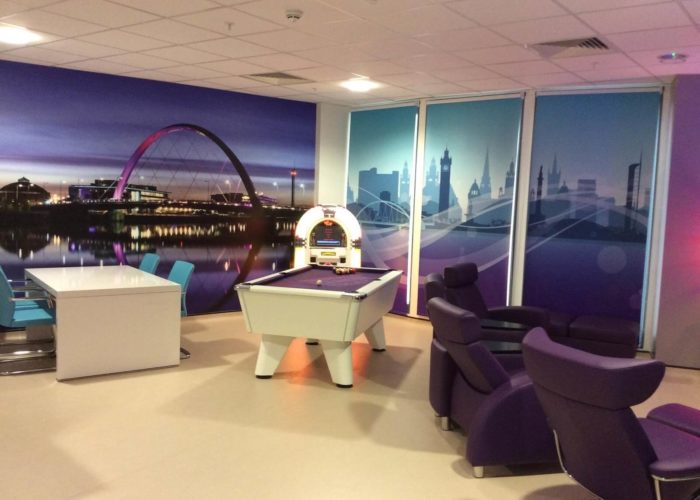
Having a social space within a hospital gives young patients the chance to interact and make friends with others who are a similar age and in a similar situation; people who understand the journey that they’re on. It provides a support network and builds their confidence, something that is incredibly important when their fighting cancer.
The benefit of being around other young people and building that support network extends outside of a ward too. It’s often on reflection, after treatment is over, that young people realise just how much they’ve been through over the past months or years and having had the opportunity to make friends while in hospital means that they have friends who are able to help them as they face the challenge of getting back to normality, a part of the journey that can feel like the toughest to face.
A place where they can spend time with their friends and family
Being diagnosed with cancer and having to stay in hospital inevitably means that there will be big changes in the day-to-day life of young patients and how they get to spend their time. Staying in hospital often means that they’ll get to spend less time with their friends and, as life goes on outside the ward, it’s easy for them to begin to feel excluded, even though that may never be anyone’s intention. As young people share more and more of their lives on social media, these feelings can become amplified as they see friends going out, having fun and enjoying themselves, something that they can no longer do.
Having a social space on a Teenage Cancer Trust ward means that there is space for young patients to spend time actually socialising with their friends, rather than just receiving visitors. When we design these spaces, we do so in a way that makes them feel a million miles away from a typical hospital environment so that friends and family can visit and patients can regain a sense of normality, even if it’s just for a short while.
This social space where friends can visit makes it easier to keep in touch, reducing the sense of isolation and also helping to make the transition into post-treatment life easier too; friends who have been able to visit throughout the time that a young patient has been in hospital will have a better understanding of the journey that they’ve been on, even if they don’t understand it fully, allowing them to offer better support as things get back to normal.
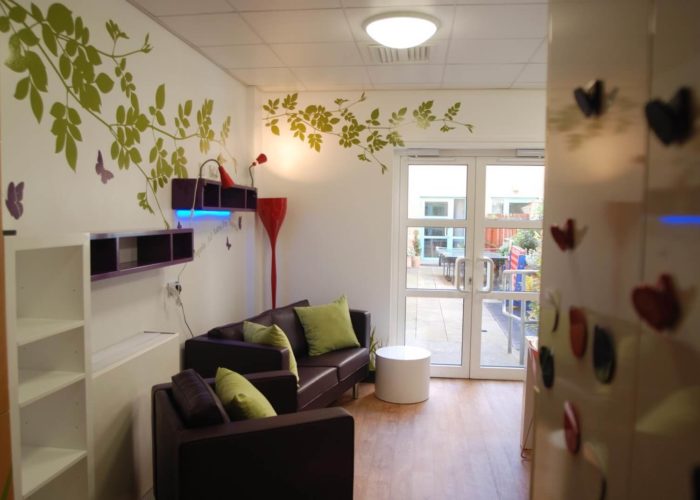
Somewhere where they can concentrate on being young people, not just young patients
Imagine going from being a young person on the verge of becoming an independent young adult to a young patient who has handed control of your everyday routine to a team of doctors and nurses, people who have your best interests at heart but are, nonetheless, still strangers. It’s no wonder that patients can be left feeling frustrated, confined and worried about missing out on the opportunity to just be young people at such a pivotal point of their lives. It can leave young patients feeling with less of a sense of self, sometimes forgetting that they are more than just in inpatient.
Having a space on the ward where patients can take part in age appropriate activities with their own friends and other patients can help to relieve feelings of confinement, boredom and, as young people would say, ‘FOMO’ (fear of missing out). We fill social spaces on wards with pool tables, jukeboxes, TVs and games consoles to help them experience a sense of normality where they can be a person, not just a patient with a diagnosis, providing respite from a situation that is, inevitably, emotionally draining.
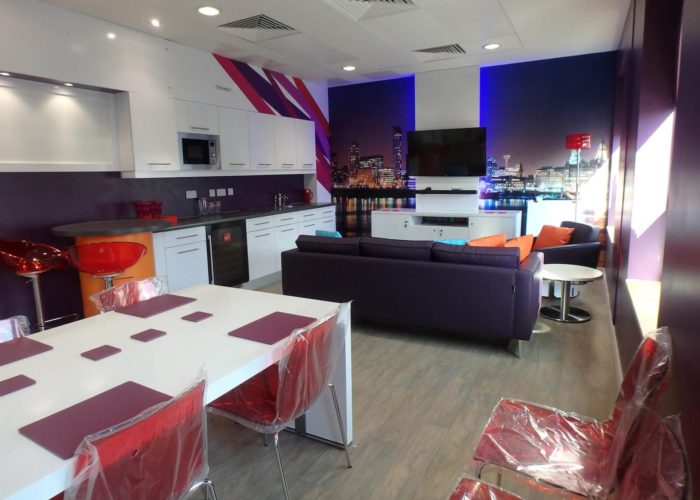
Helping patients feel less fed up and frustrated and more positive about the actual treatment process that they are going through is hugely important. There is a growing body of research which shows that a healthier attitude to treatment can help to promote more positive outcomes which is why it is something that we always factor into our work with Teenage Cancer Trust and work with them to create social environments that meet the specific needs of young patients with cancer.
If you’d like to find out more about how we can help to create a more positive environment for young people in your hospital, please get in touch and, to keep up to date with the latest news about the work we’re doing with different wards, make sure you subscribe to our newsletter.

